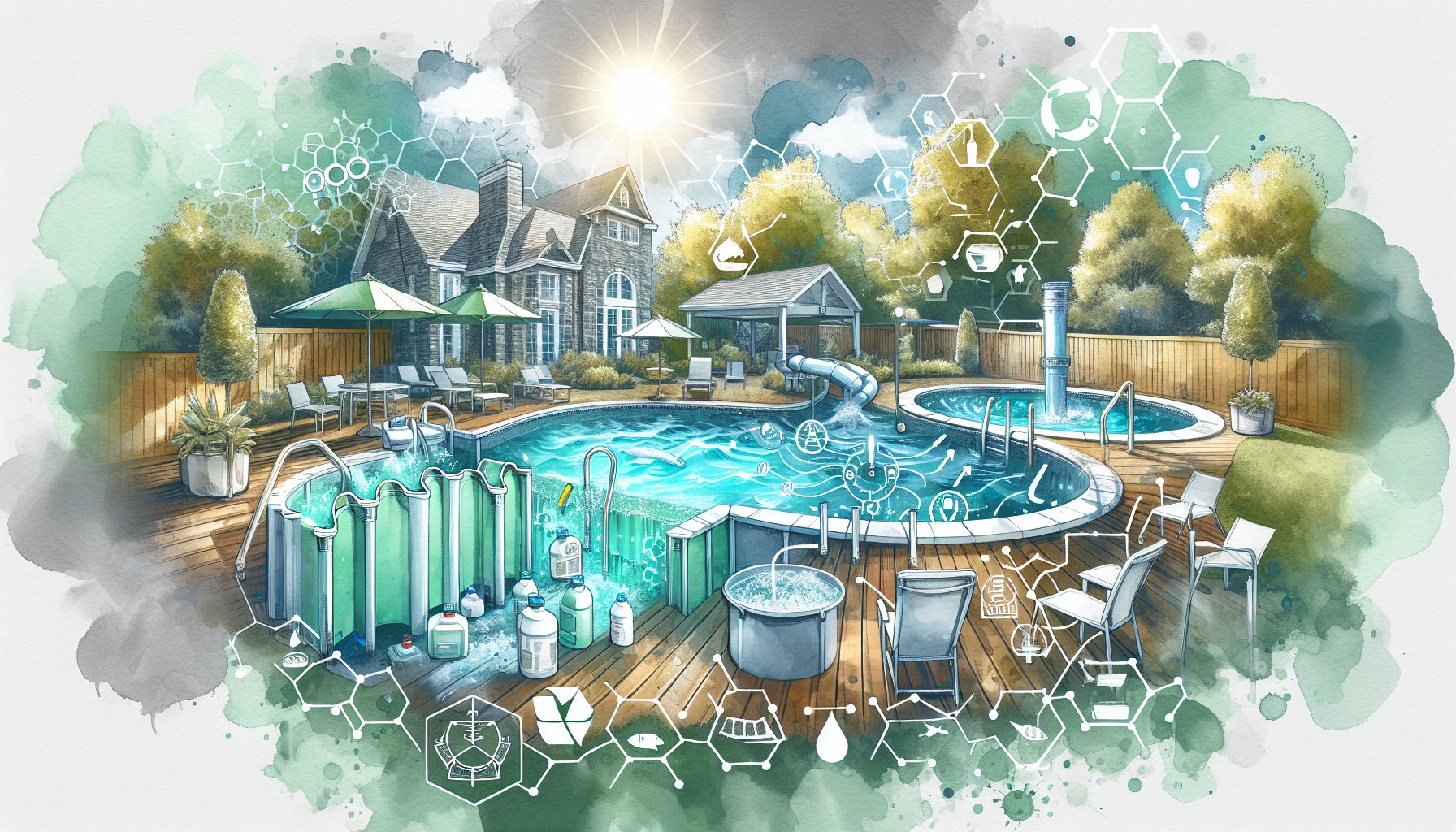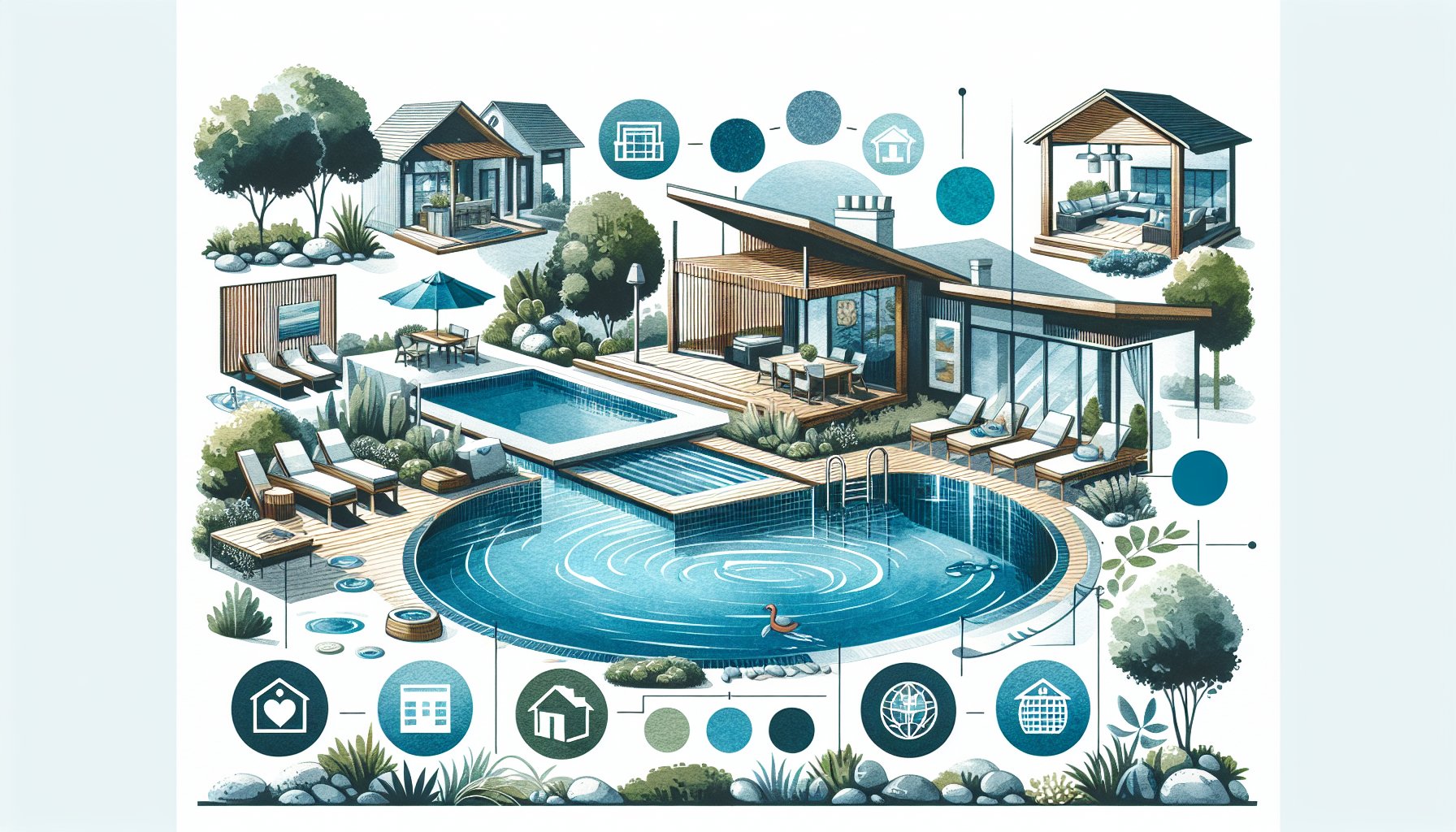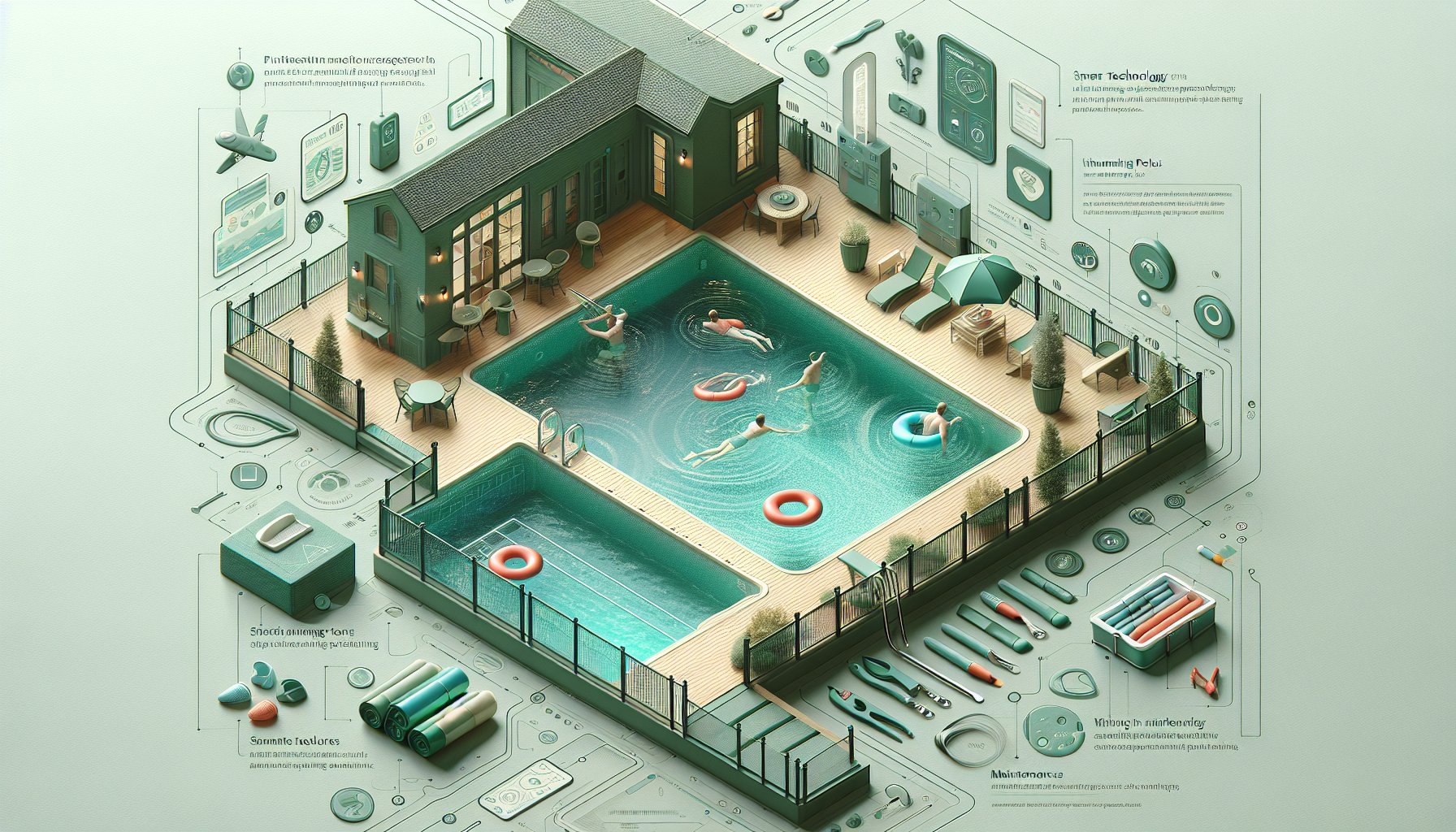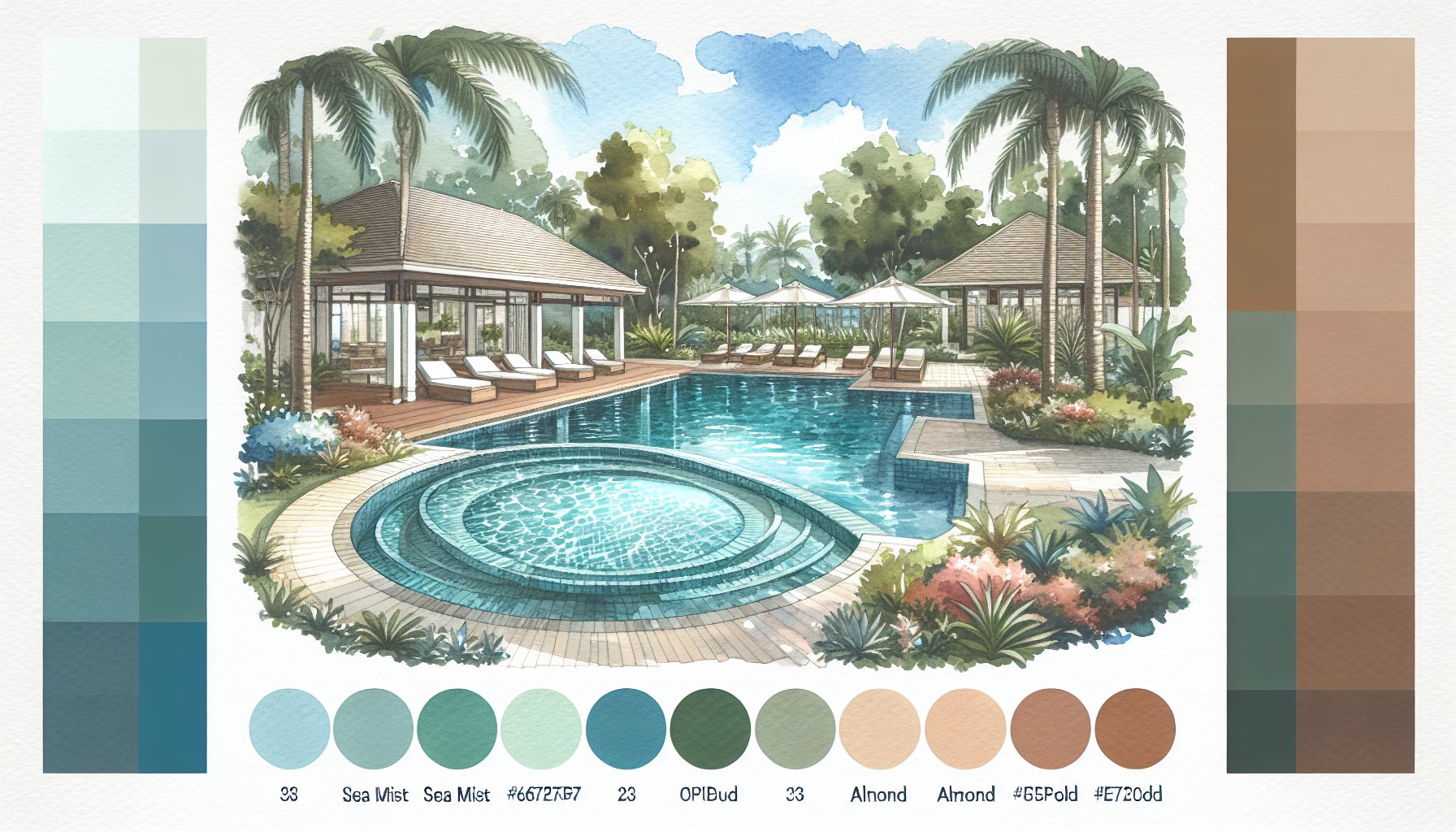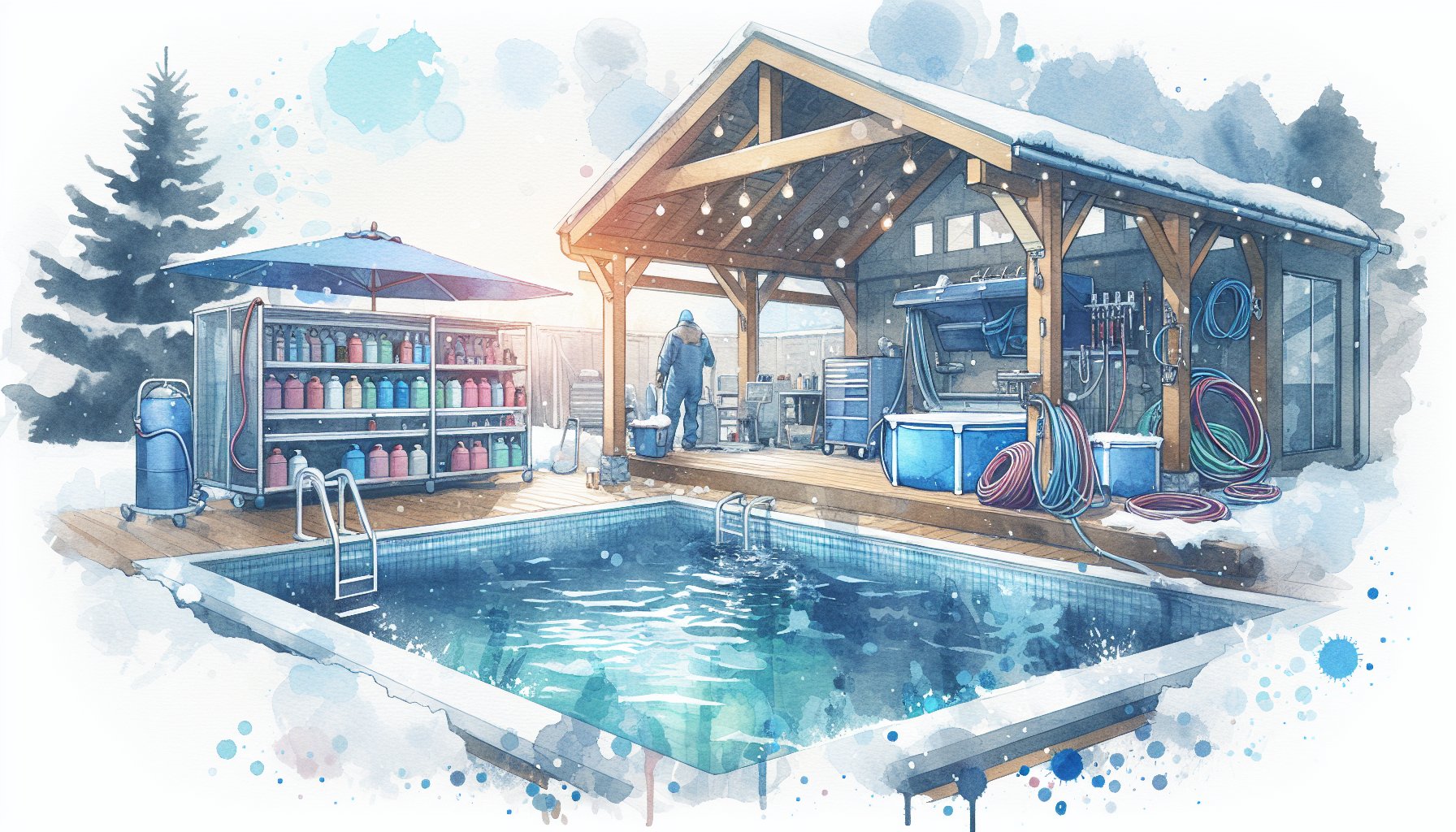Inground Pools
The Environmental Impact of Inground Pools: What Homeowners Should Know
Discover the environmental impact of inground pools and learn how to enjoy your backyard oasis responsibly. Explore eco-friendly options, local regulations, and sustainable practices to harmonize leisure with sustainability.
Aug 13, 2025
6 min read

the Environmental Impact of Inground Pools: What Homeowners Should Know
TLDR Summary Box
Thinking about an Inground Pool? They bring luxury and fun but also environmental and practical challenges. Consider water use, energy demands, and the chemicals involved. Explore eco-friendly options like solar heating, saltwater systems, and natural swimming pools. Stay informed about local regulations and insurance implications. By balancing enjoyment with responsibility, you'll not only splash in style but also make a positive impact. It’s about harmonizing leisure with sustainability, creating a backyard paradise that respects our planet.
Take the Plunge: Understanding inground pools
Inground pools are the ultimate backyard dream, a splashy blend of leisure, luxury, and laughter. Yet, like any dream worth its salt, they bring along a whole suite of responsibilities and considerations. Sure, they promise endless summer vibes, but beneath the shimmering waters, there's a deeper, more complex narrative. Pools demand consistent maintenance, come with safety implications, and carry an environmental footprint that's anything but negligible.
First, let's dive into the nitty-gritty of maintenance. Pools operate as intricate systems, requiring non-stop attention to plumbing, filtration, and chemical balance. Chlorine, the unsung hero of pool sanitation, keeps algae and bacteria at bay but often leaves behind unwelcome side effects like skin irritation and eye redness, particularly for those with sensitive skin or allergies. Unsurprisingly, these issues can turn a day of relaxation into a squinting, itchy ordeal. And don’t forget local building codes, which vary wildly. These aren't just bureaucratic hurdles; they are about ensuring safety and legal compliance. It's essential to know your area's definition of a "home pool," especially when it comes to insurance. Speak to your provider to understand how a pool installation might adjust your policy and your peace of mind.
Water Woes: The Hidden Cost of Your Backyard Oasis
Picture this: a perfect summer afternoon, kids splashing, adults lounging, it’s pure bliss until you realize the hidden costs of that aqua escape. The water footprint of an inground pool isn’t just about filling it once and calling it a day. It’s about the constant battle against Carolina's notorious heat and the evaporation it causes. On average, a typical pool loses about an inch of water each week during summer, a sobering thought when you tally up the gallons needed for replenishment.
This isn't just a hit to your water bill, it's a genuine ecological concern, particularly in water-stressed regions. And while chlorine is great for keeping the water pristine, its environmental toll can’t be ignored. Improperly managed, chlorinated water can leach into nearby ecosystems, upsetting local wildlife and plants. In essence, the relaxation you seek could be costing the planet more than you realize.
Chemical Conundrum: Unmasking Chlorine's Dark Side
Let’s talk chlorine. Yes, it’s a sanitation superstar, but it often gets an A+ for being a party pooper, too. Besides red eyes and itchy skin, the environmental toll is significant. Chlorine reacts with organic matter, spawning compounds like trihalomethanes, which are far from eco-friendly. They don’t just evaporate, they seep into waterways and sometimes drinking supplies.
Searching for alternatives? Consider saltwater or mineral-based systems. They offer a softer touch on the skin and a gentler effect on the environment. This isn't just about saving your skin, it's about safeguarding the planet. Make this choice not just for your family but for everyone who shares your corner of the world.
Energy Drains: The Power Play of Pool Pumps and Heaters
A pool is not just a water-filled hole; it's a demanding energy consumer. Pumps work tirelessly to keep water moving and clean, but single-speed pumps can guzzle energy like there's no tomorrow. And let's not even start on gas heaters that sustain pool coziness in early spring and late fall but leave hefty carbon footprints in their wake.
Luckily, there’s hope. High-efficiency pumps and solar heaters are eco-friendly options just waiting to be embraced. Variable-speed pumps consume significantly less power, ticking along at lower speeds. And solar heaters? They soak up the sun’s generosity, making energy bills a bit lighter and the earth a little greener.
Landscaping the Liquid Lifestyle: Harmonizing with Nature
Installing an inground pool may seem like the perfect home improvement, but it can be a real party crasher for local ecosystems. Excavation alters soil structure, impacting flora and fauna alike. Chemical runoff doesn’t help either, it changes soil pH levels, creating zones of chemical toxicity that threaten plant and animal life.
Eco-friendly landscaping practices can mitigate these effects. Explore natural swimming pools, which use plants for filtration instead of chemicals, and enrich the soil with native plants to restore biodiversity. This isn’t just landscaping; it’s creating a balanced ecosystem that shares your backyard paradise.
Innovations in Sustainability: Riding the Green Wave
Not all hope is lost for pool lovers on the eco-conscious path. Innovations in pool technology offer sustainable solutions without compromising the fun. Saltwater systems reduce the need for harsh chemicals, while solar pool heaters offer a renewable way to warm those inviting waters.
Consider natural swimming pools for a completely chemical-free experience, or use sustainable materials for pool construction. A little creativity and a lot of heart can transform your pool from an environmental foe to a planet-friendly friend.
The Regulatory Ripple: Staying Legal and Logical
Local regulations aren’t just hoops to jump through; they safeguard our environment and community resources. Permits, water-use restrictions, and insurance considerations are all part of responsible pool ownership. Understand your town's rules before making any moves and incorporate eco-friendly practices to align with emerging community standards.
Community Ripples: Sharing the Splash
Your pool’s impact doesn’t stop at the edge of your yard. It ripples out into the community, affecting water resources, safety, and social dynamics. Engaging with neighbors about safety measures or sharing a community pool are ways to foster collective responsibility and conserve resources.
Making Waves: Becoming an Eco-Champion
Embrace the wave of change by integrating sustainable practices in your pool ownership. Pool covers, eco-friendly chemical alternatives, and solar panels can showcase your commitment to a sustainable lifestyle. Your backyard can become a beacon of eco-friendliness, proving that summer fun and environmental stewardship aren’t mutually exclusive.
Reflecting on the Future: Rethinking Our Relationship with Pools
As the summer sun beckons, it’s time to rethink our relationship with pools. The joy they bring should be tempered with mindfulness of their environmental impact. By embracing sustainable practices and technologies, we can ensure that our summer sanctuary enhances, rather than harms, our world. Let's commit to a future where enjoyment and environmental integrity go hand in hand. At Carson Outdoor Living, we're ready to help you make your dream pool a reality, responsibly and sustainably.

Need Help?
Check out these related products that can help:


